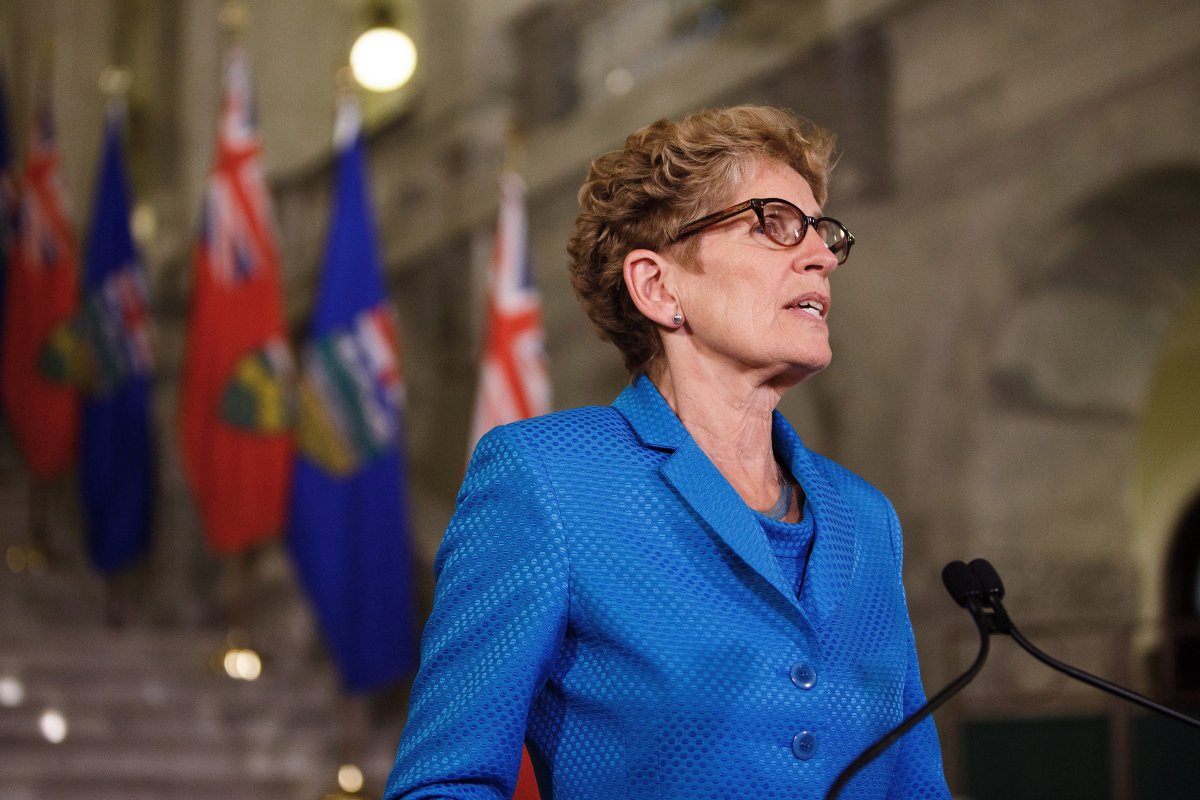OTTAWA — Ontario Premier Kathleen Wynne says her province’s position going into talks about making changes to the Canada Pension Plan isn’t the biggest hurdle to getting a deal done – it is other provinces that are balking at retirement reforms.

Ontario is pushing for changes to the CPP that would mirror the provincial pension program it promised to create, and plans to start phasing in next year and charging new premiums to pay for the plan the year after that.
Federal officials see Ontario’s position in the talks as a key hurdle to negotiating an agreement, but Wynne said her province has not been the problem in discussions around CPP reform.
READ MORE: Feds see Ontario stance on CPP as key challenge to expanding pension plan
“We remain the champions of CPP enhancement,” Wynne said Friday at an event in Ottawa.
“We have continued to be at the table when other provinces have not necessarily been putting forward retirement security as a priority. We have continued to bring it to the table.”
Wynne said her province will forge ahead with its own pension plan next year, known as the Ontario Retirement Pension Plan (ORPP), in the absence of buy-in on changes to how much CPP pays out in retirement benefits and how much workers will be expected to pay in premiums.
“I will be a very happy woman if we can find a consensus across the country. But I’m not going to let people down if we can’t,” she said.
“We will continue to put the ORPP in place in the absence of that consensus.”
Federal, provincial and territorial finance ministers will meet later this month in Vancouver to talk about CPP reforms with the aim of having a deal in place by the end of the year.
Since December, when the federal and provincial finance ministers last met, political and bureaucratic conversations have been intensifying behind the scenes to garner support for an expanded pension plan. But coming to a consensus has proven difficult.
An agreement would be the first major CPP overhaul in almost 20 years after the provinces and federal government agreed to increase premiums in 1997 as part of work to make sure that one generation of workers wasn’t paying for the retirement of another generation.
Most provinces were ready to agree to an expansion of CPP in 2013. But the previous Conservative government balked at the move, which led the Ontario Liberals to head down the path of their own provincial pension plan. Quebec also has its own provincial pension plan.
READ MORE: Finance Minister Bill Morneau turns focus to enhancing CPP
Any change to the CPP requires the consent of seven provinces with at least two-thirds of the population, meaning Ontario’s blessing is needed for any deal. Provinces like B.C. and Saskatchewan are wary of any deal where premiums paid by workers and business owners would have to go up, but their percentage of the national population means their exclusion wouldn’t kill an agreement.
“Our position was that retirement security was a national crisis, that it’s something that needed to be tackled,” Wynne said.
“Let’s find a consensus across the country, let’s have a CPP enhancement that is going to ensure that Canadians have a secure retirement because what’s in place now is not adequate. So that remains our position.”
Ontario is looking for a national agreement to target Canadians who don’t have a workplace pension plan, provide coverage to those higher up on the income scale, increase the maximum annual benefits to seniors to about $25,000 from the current $12,500, a move that would require an increase in premiums.



Comments